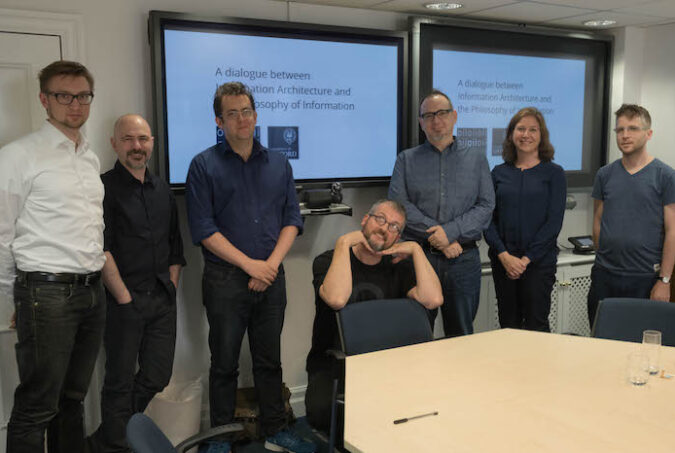On June 27 the Ethics and Philosophy of Information Cluster at the OII hosted a workshop to foster a dialogue between the discipline of Information Architecture (IA) and the Philosophy of Information (PI), and advance the practical and theoretical basis for how we conceptualise and shape the infosphere. A core topic of concern is how we should develop better principles to understand design practices. The latter surfaces when IA looks at other disciplines, like linguistics, design thinking, new media studies and architecture to develop the theoretical foundations that can back and/or inform its practice. Within the philosophy of information this need to understand general principles of (conceptual or informational) design arises in relation to the question of how we develop and adopt the right level of abstraction (what Luciano Floridi calls the logic of design). This suggests a two-way interaction between PI and IA. On the one hand, PI can become part of the theoretical background that informs Information Architecture as one of the disciplines from which it can borrow concepts and theories. The philosophy of information, on the other hand, can benefit from the rich practice of IA and the growing body of critical reflection on how, within a particular context, the access to online information is best designed. Throughout the workshop, two themes emerged: The need for more integrated ways to reason about and describe (a) informational artefacts and infrastructures, (b) the design-processes that lead to their creation, and (c) the requirements to which they should conform. This presupposes a convergence between the things we build (informational artefacts) and the conceptual apparatus we rely on (the levels of abstraction we adopt), which surfaces in IA as well as in PI. At the same time, it also calls for novel frameworks and linguistic abstractions. This need to reframe the ways that we observe informational phenomena could be discerned in several contributions to the workshop. It surfaced in the more…
Advancing the practical and theoretical basis for how we conceptualise and shape the infosphere.


